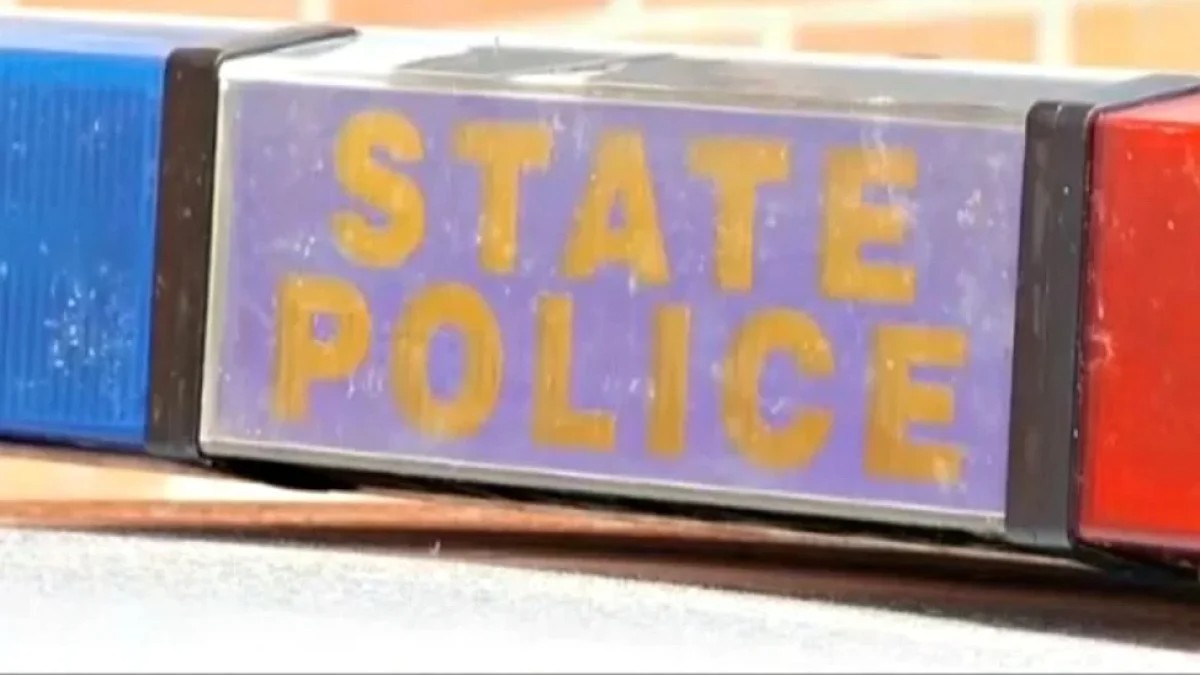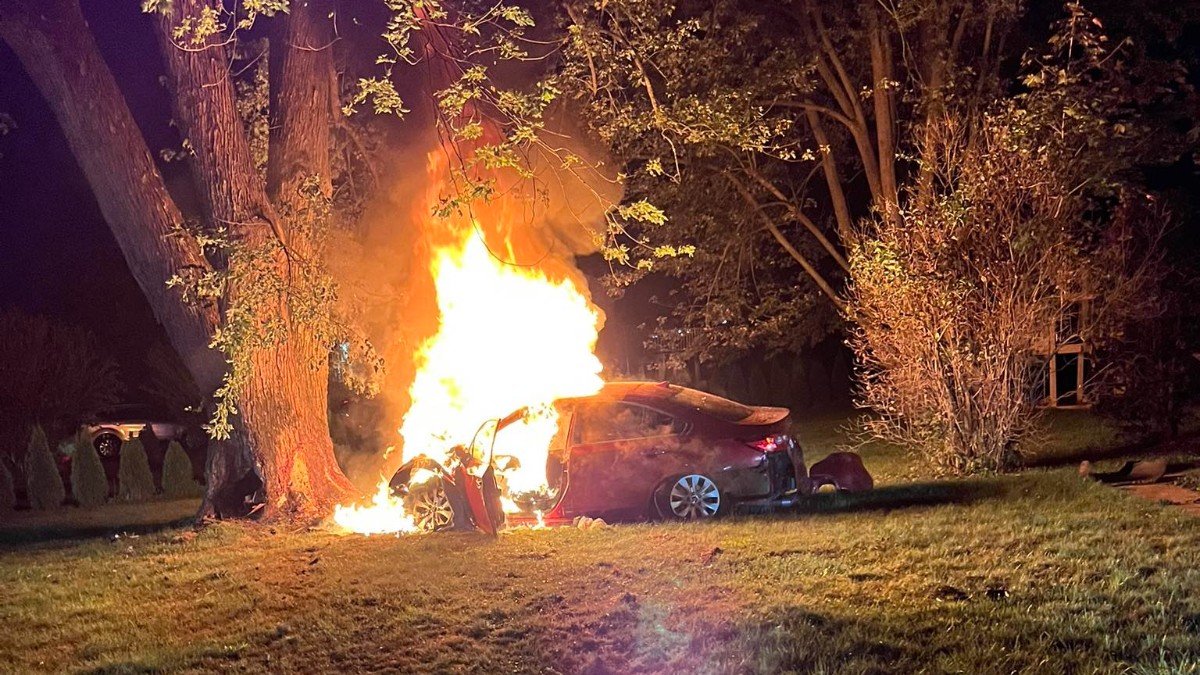Connecticut
Beloved CT restaurant closes abruptly, a ‘very difficult decision’ leaving them ‘heartbroken’

One Fifty Central restaurant and bar in Bristol is the latest victim of Connecticut staff shortages and soaring costs, announcing their permanent closure through Facebook.
In the parting Facebook post, the restaurant’s owners thank loyal customers and employees who became “like a big extension of our Santorso family,” and they wished there was time to stay open to say proper goodbyes.
The owners could not be reached for comment.
The post says summer is the hardest season for the restaurant business and “it’s normal for finances to be tight, but it usually all works out in the fall and winter.
But the post also says there are persistent staff shortages in the kitchen
“Knowing that the kitchen would be unable to function without a full staff, and having been unable to find any competent employees through this nationwide employee shortage, we knew that we would be unable to open for the foreseeable future without jeopardizing the quality and service our customers deserve,” the social media post states.
That is combined with the overall difficulty in their restaurant business post-COVID, such as food, utility and payroll costs, contributed the closure, the Facebook post states.
“All these things combined have led us to this very difficult decision,” the post states, adding they are “heartbroken” that this is how it ended.
Employers are running into hiring troubles across many industries in Connecticut, with nearly 100,000 openings going unfilled as of last month. Other restaurants in Connecticut have opened this year amid the hiring issues.
5 new CT restaurants to try this summer. Think taste, location, ambiance.
The One Fifty Central restaurant restaurant, described on its website as an American bistro, has been in business for about 10 years.
Customers reacted on Facebook with sadness and fond memories.
One woman wrote in the comments section, “We love your family and will miss seeing everyone tremendously. Thank you for being such a huge part of our family’s celebrations and making us feel so welcome and loved for so many years.”
Another customer wrote, with a sad face emoji,: “It has been so many great years…”
Another customer who thanked the owners for a “wonderful dining experience,” wrote: “You always treated your customers like family. You have a lot to be proud of. Wishing you all the best. You will definitely be missed.”
Another commenter acknowledged the tough times for business, writing, “This makes us so sad. It is so difficult to keep a business moving these days and you all did everything you could to keep it going.”
Connecticut’s COVID-19 emergency ended in May, according to Gov. Ned Lamont. He said at the time that the economy bounced back and economic conditions are improving, though rebounding from the personal impact of the pandemic may take a little longer.

Connecticut
Human remains found at construction site in Greenwich

Police are investigating after finding human remains at a construction site in Greenwich last week.
The police department said that during a normal workday at a construction site in northern Greenwich, workers found what appeared to be human remains after soil was disturbed by an excavator.
The remains were carefully collected from the scene, and the Office of the Chief Medical Examiner took custody of the bones, police said.
Investigators said the remains appear to be of a considerable age.
Connecticut State Police is also assisting with the investigation.
Connecticut
A motorcyclist in Hebron is dead following crash

A motorcyclist in Hebron has died after a crash along Burnt Hill Road and Cone Road, state police said.
The Connecticut State Police responded to the accident at approximately 5:25 p.m. after a dirt bike struck a rocky embankment.
According to authorities, the operator of the motorcycle failed to negotiate an “S” shaped curves in the roadway before loosing control.
The victim was originally transported via LifeStar to the hospital with reported serious injuries, authorities said.
The driver was then later pronounced dead at Marlborough Middlesex Clinic, state police said.
Anyone who may have witnessed this accident, or who may have information is asked to contact the Connecticut State Police.
Connecticut
Driver rescued from crash in Wolcott, serious injuries reported

A driver was rescued from a crash in Wolcott early Saturday morning and serious injuries have been reported.
Officers received a report of an accident on Beach Road around 3 a.m. Once there, police said they found a vehicle had hit a tree.
An occupant of the home where the vehicle crashed pulled the driver out of the car before the car caught on fire, according to police.
The driver was transported to the hospital to be treated for very serious injuries.
No other occupants were in the vehicle at the time of the crash.
The crash remains under investigation by the Naugatuck Valley Regional Collision Reconstruction Team.
-

 Finance7 days ago
Finance7 days agoReimagining Finance: Derek Kudsee on Coda’s AI-Powered Future
-

 World6 days ago
World6 days agoSyria’s new president takes center stage at UNGA as concerns linger over terrorist past
-
North Dakota7 days ago
Board approves Brent Sanford as new ‘commissioner’ of North Dakota University System
-

 Technology6 days ago
Technology6 days agoThese earbuds include a tiny wired microphone you can hold
-

 Culture6 days ago
Culture6 days agoTest Your Memory of These Classic Books for Young Readers
-

 Crypto6 days ago
Crypto6 days agoTexas brothers charged in cryptocurrency kidnapping, robbery in MN
-

 Crypto7 days ago
Crypto7 days agoEU Enforcers Arrest 5 Over €100M Cryptocurrency Scam – Law360
-

 Rhode Island7 days ago
Rhode Island7 days agoThe Ocean State’s Bond With Robert Redford




















